The first round of national elections in Uruguay will take place on the last Sunday in October. It is highly unlikely that either of the two presidential front runners will be able to make 50 percent of votes required to be directly elected, which means the president will be decided in a run-off exactly one month later. Polls show that the right wing candidate will win the second round, recovering the presidency after 15 years of progressive governments with a parliamentary majority.
Eleven men are competing for the job of president, but only two have the potential to be elected: progressive Frente Amplio candidate Daniel Martínez and Luis Lacalle Pou from the right wing National Party. Behind them are Ernesto Talvi from the Partido Colorado, which ruled the country nearly uninterrupted for 200 years. Polling in fourth place is Cabildo Abierto, a party created in April whose candidate, Guido Manini Ríos, was commander in chief of the armed forces for four years during the Frente Amplio governments. The remaining parties are much smaller, with support hovering around one percent.
In Montevideo, among social activists without party affiliations, the electoral process hasn’t raised our expectations, rather, there is concern about the outcome. Some think that it would be best for the progressives to lose, so as to clarify relations between those in struggle and the state. This seems to be contradicted by events in Argentina: after four years under the right wing presidency of Mauricio Macri, with exception of the strength of the feminist movement, the remainder of popular forces are waiting for the return of a decaffeinated Kirchnerism. It would be terrible to find ourselves in that situation in 2024. Others prefer a government that is less hostile to struggles: an apathetic expression of voting for the least bad.
Speculation aside, social struggles should be examined upon their own terrain. It does matter who wins the elections, but what’s most important is how struggles regain power and leadership after 15 years of controlled conflict under progressive governments. The question is, how do we take back the best of our tradition of struggle, becoming a social force no matter who is in power?
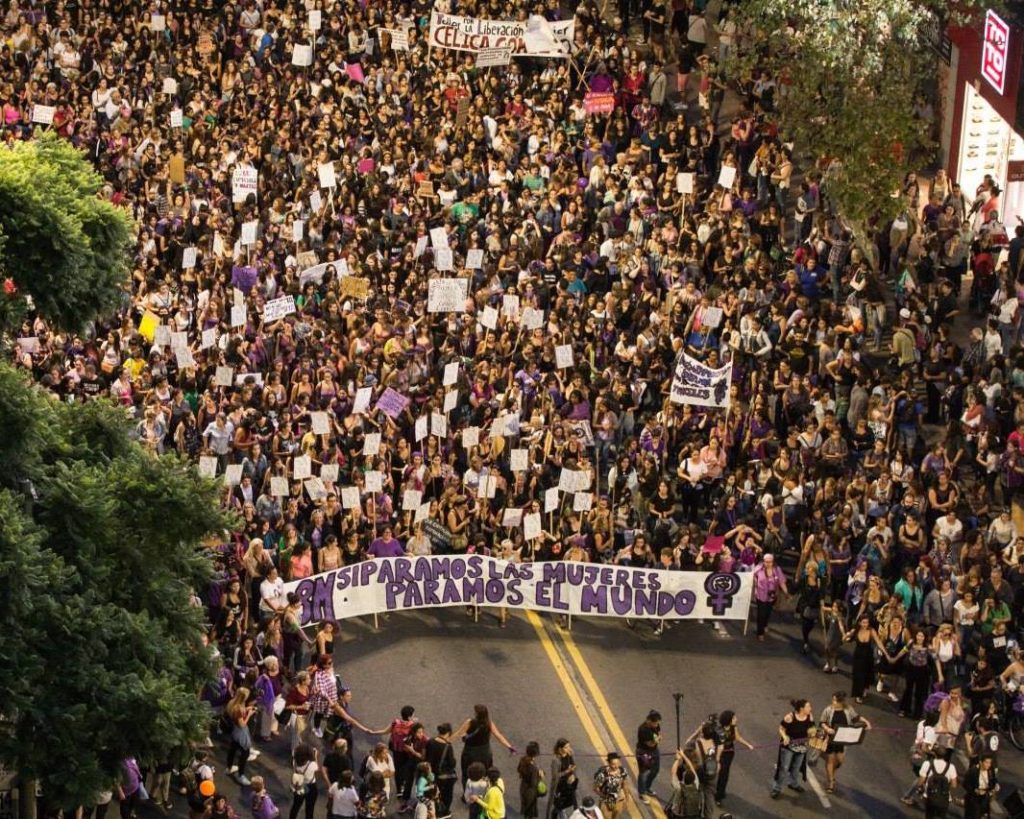
In Uruguay, feminist and environmental struggles have pushed past the horizon of possibility established by progressive governments. An important aspect of the struggle against all machista violence is that it doesn’t position itself only in terms of making demands of the state. Government proposals to address this violence, which are always punitive, are vocally criticized by part of the women’s movement.
Likewise, struggles against big agriculture, mining and water contamination have forged structural resistance to the extractivist policies that progressive governments have encouraged. Apart from feminist and environmentalist struggles, other movements in Uruguay largely operate within a political horizon that is delineated by what the government makes appear possible.
The union movement continues to be very important in Uruguay, but it has restricted its actions to attaining concrete gains, like the right to collective bargaining. These gains are important, but clearly insufficient. We have much to learn from the struggles that have managed to overflow the state, building pragmatic relations with the government in a way that isn’t totally state centered. These struggles oblige the state and bosses to obey us, and allow for a break between popular desires and the lukewarm government responses.
Over three terms in power, the Frente Amplio abandoned any hint of attempting to carry out transformations related to the injustices and domination under which we live. It has become common for the government to celebrate investor rankings and measurements that show the good health of Uruguay’s dependent capitalism.
Depending on an economic model based in foreign investment and the intensification of the plunder of nature in order to grow is like buying a rope measured to the exact size of one’s neck. The legitimacy of the capitalist economic model could momentarily be restored by a two percent growth in Gross Domestic Product, which is what has been promised if a new pulp plant is built.
But then what? Wait for another investment in even more unfair conditions?
The solutions to the problems of our lives are not to be found between liberal progressivism and conservative reconstruction. Our jobs are precarious and badly paid, half of our paychecks go to rent on payday, our public services are expensive and of bad quality, and expressions of violence are increasing.
The crisis of the left in relation to strategies of transformation is longstanding and profound. In the next few months we will elect the next government, but our alternatives are elsewhere, and in order to find them we must search differently. It isn’t just about wanting a better government, rather, it is necessary to give form to political experiences that allow us to take direct control and responsibility of the means of life (medios de vida). We can do so by strengthening existing autonomous organizing processes, as well as creating new ones for the management of water, housing, education and health services. This kind of organizing allows us to produce a new equilibrium, deforming the modus of the government and its commodified management of life.
Context and Background of the 2019 Elections in Uruguay
Elections in Uruguay happen in two phases: the first round is about the formation of parliament, followed by a run-off, in which the two candidates with the most votes try for the presidency.
The polls are showing that in the first round of voting the Frente Amplio will get between 30 percent and 40 percent of votes, the National Party, between 23 and 28 percent, the Colorado Party between 12 and 18 percent and Cabildo Abierto between 7 percent and twelve percent. Two polling firms have predicted run-offs, and according to both, the right wing wins. Opción consulting puts Lacalle at 49 percent and Martínez at 41 percent, while Radar puts Lacalle at 47 percent and Martínez at 44 percent.
The results of the first round don’t transfer directly to the run-off, for at least one reason that benefits the Frente Amplio candidate. Contrary to polling, it is unlikely that Lacalle attracts all of the votes that went toward Talvi and Manini, especially because of their upper class style, which is to say, their high airs and bourgeois manners. This leads there to be some doubt as to whether or not Martínez would suffer at the polls.
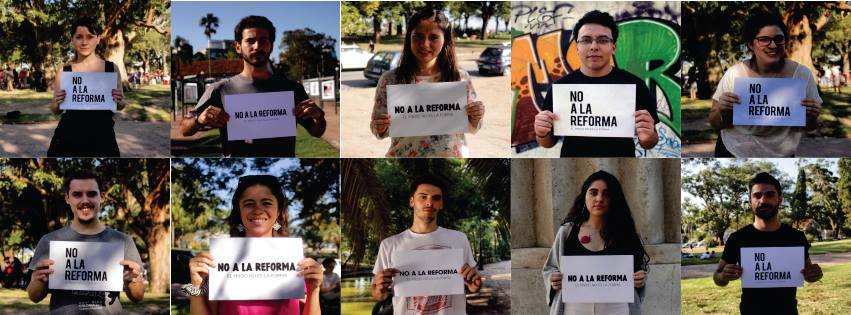
On election day, a plebiscite pushed by right wing parties promoting constitutional reforms will be held. At stake is a proposal to respond to an increase in social violence with more repression. The key changes would allow for the creation of a National Guard staffed by soldiers, the introduction of revocable sentences of life without parole for serious crimes, and open the possibility allowing police to enter private homes during nighttime hours, which is currently unconstitutional.
The results of the plebiscite are up in the air, but it has lost momentum in the polls over the past weeks. The proposal for constitutional reforms unite the most conservative positions, though all of the viable candidates for President are proposing new repressive measures. For example, Frente Amplio candidate Martínez is proposing more police patrols, better police equipment and increased video surveillance.
Whoever wins, the next government will be weaker than the three previous, and will also be more to the right. None of the political parties will have a parliamentary majority and the conformation of blocs is, a priori, not straightforward. Parties will be more dispersed and the right will have more of a voice in parliament. At the moment, five parties have parliamentary representation, and its probable that three or four more will enter, and that Cabildo Abierto in particular will do so with considerable strength. Everything indicates that Cabildo Abierto is going to punch above its electoral weight, as in the best of cases the party will elect four senators and a dozen legislators. Among the rest of the parties, only Popular Unity has a clear leftist orientation.
The Candidates: A Cache of Recycled Novelties
A social democrat with entrepreneurial rhetoric, the son of the president who started privatizations in the 1990s, a Chicago Boy and a military man with an extreme right pedigree: these are the main electoral options.
Martínez and Talvi are both 62, Manini is 60 and Lacalle 46. They’re all university trained professionals: Martínez is an industrial engineer, Talvi an economist, Manini is a career soldier who is trained as a historian, and Lacalle a lawyer. The first two graduated from the University of the Republic, which is public, and the second two from the Catholic University, which is private. Paradoxically, the two who graduated from public university have spent their careers in the private sector, and vice versa: Manini as a soldier, and Lacalle as a parliamentarian since the age of 27.
Daniel Martínez was the president of socialist youth, he was a political activist with said party and a union leader in the white collar union representing state oil workers (ANCAP). In the early 1990s, his work was mainly in the private sector. After the Frente Amplio was first elected in 2005, Martínez became president of ANCAP and later, Minister of Industry. As Minister, he entered the Great Lodge of Masons.
In 2010, although polls showed he had broad support, the Frente Amplio denied him the chance to run for mayor of Montevideo. In 2015, however, Martínez ran as the Frente Amplio’s candidate for mayor, a race he won. In his public speeches he insists on defending the gains made by progressive governments and emphatically criticizes the negativity of his political opposition. The slogan of his campaign is “Maintain the good, Do it better” (“Mantener lo bueno, hacerlo mejor”).
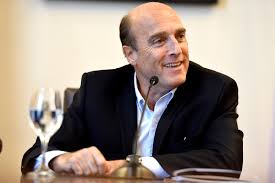
Paradoxically for a “leftist” candidate, Martínez has expressed on numerous occasions that one of the structural challenges in Uruguay is to generate an entrepreneurial culture. He is leading the charge for the generational shift within the Frente Amplio, and habitually creates his own political teams without paying heed to internal balances or key figures in the party, like former Presidents Tabaré Vázquez and Pepe Mujica, and former VP Danilo Astori.
His choice of Graciela Villar as Vice President was surprising, as it contradicted the opinions of Astori, and displaced Carolina Cosse, the candidate from Mujica’s sector who had placed second in internal voting. Before her promotion, Villar was an activist who was outside of party structures. We can see that Martínez’s movements are shaking up the Frente Amplio’s structure and internal agreements. Early in the campaign, two of the key sectors of the Frente Amplio, the rightist coalition behind Minister of Economy Danilo Astori and former President Mujica’s sector, saw reduced voter interest. Regardless, those important groups within the coalition continue to function. Polls show that the more “progressive” segments of the coalition, organized behind ex-Central Bank president Mario Bergara and alliances around Oscar Andrade’s Communist Party will become the key forces in the Frente Amplio’s parliamentary representation.
Martinez’ key proposals are infused with a modernizing and developmentalist aura, which propose continuity with the model of promoting private investment so as to ensure continued growth. The plan is to have the state generate the benefits required so that economic activity can grow indefinitely, so that a much smaller part of that growth can then be transferred to public services and targeted sectors.
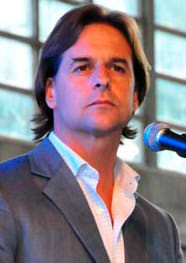
Luis Lacalle Pou is the youngest candidate in the presidential race. He’s the son of Luis Alberto Lacalle Herrera, who was president between 1990 and 1995, and the leader of the National Party, founded by his great grandfather, Luis Alberto de Herrera. Lacalle represents a return to neoliberal, pro-market policies, though in his speeches he has expressed support for some of the social policies put in place by the Frente Amplio. He is proposing a massive reduction in public spending (a shock) to contain the fiscal deficit and make salary negotiations in each sector more flexible.

Ernesto Talvi is a University of Chicago trained economist who was taken under the wing of the last Colorado Party president, Jorge Batlle, before his death in 2016. He was an advisor to the national bank between 1990 and 1995. Since the late 1990s, he directed CERES, a foundation that assists agriculture and livestock producers and business people. Talvi self identifies as liberal, his discourse is laden with the tradition of Uruguayan exceptionalism and the notion of Uruguay as the Switzerland of the Americas. His campaign slogan is “a small, model country” which is one of Battle’s most famous phrases.
Guido Manini Ríos is a mature novelty. Novel because he broke out with his party just a few months ago and has already attracted 12 percent of the electorate (and is rising in the polls). Mature, because he’s from a political family from the extreme right Riverista sector of the Colorado Party. His grandfather was a parliamentarian, senator, Minister of Interior and Foreign Affairs Minister, as well as Minister of Finance during the dictatorship of José Luis Gabriel Terra (1933-1938). His uncle Carlos was a parliamentarian, senator and minister during the pre-dictatorship government of Jorge Pacheco, as well as Minister of the Interior during the first government of Julio Maria Sanguinetti.
Pepe Mujica named Manini commander of the armed forces in 2015, a position he held until 2019, when he was fired by President Vázquez for violating constitutional prohibitions on soldiers intervening on national political issues. First, Manini weighed in on reforms to military pensions, and later, he criticized the justice system for its treatment of soldiers involved in tribunals for crimes against humanity. Manini is from a wealthy background, he studied at the French school, became a soldier and studied history at the Catholic University. He was a military observer in Iran (1988), Iraq (1989) and Mozambique (1993-1994).
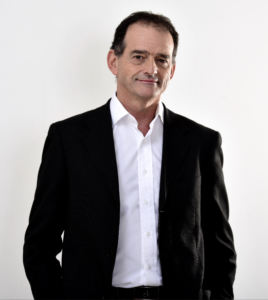
One year after becoming a general in 2010, Manini began to work as the military attaché in the United States embassy. As head of the armed forces, he became close to some members of government, especially the Defense Minister, ex-Tupamaro Fernández Huidobro. Manini is remembered for his participation in Huidobro’s funeral, when he said that Huidobro had been one of the best defense ministers in the history of Uruguay. In 2017, human rights organizations accused Manini of giving false leads as to the whereabouts of the disappeared.
Manini brings to mind Mario Aguerrondo, a soldier who was the anti-communist, ultra-nationalist chief of police in Montevideo in the early 1970s. Aguerrondo founded the paramilitary group the Lieutenants of Artigas, he ran in 1971 elections for the National Party and received around the same amount of support as Manini (13 percent). Manini and Aguerrondo are linked through their use of Artiguism in its military-nationalist version, their military pasts, their promotion of “iron fist” policies, and also because their support comes from similar sectors.
It is worth noting that regardless of the effort to come across as presenting renewed proposals that come from outside of “professional politics,” all of the candidates are well connected with different power groups and the key political traditions. In this context, the outcome we expect from the upcoming elections is a turn to the right. It could be a slight turn or a very sharp one, and it could come with or without progressive promises.
A shorter version of this essay will be published in the German magazine Lateinamerika Nachrichten. Translated by Toward Freedom.
Author Bio
Diego Castro Vilaboa is a professor at the Public University of Uruguay and doctoral student in Sociology at the Benemérita Universidad Autónoma de Puebla, México. Researcher on social struggles and sociopolitical movements in Uruguay and Latin America. He is a member of the Zur Pueblo de Voces collective.
